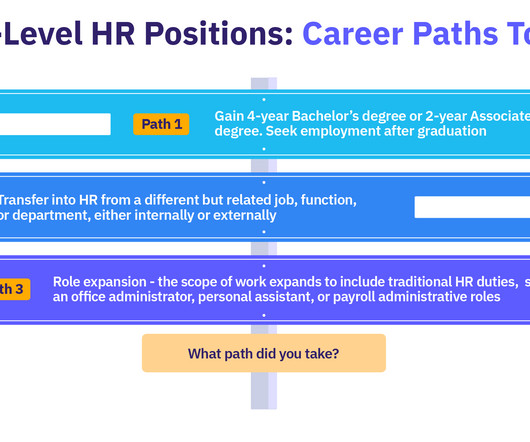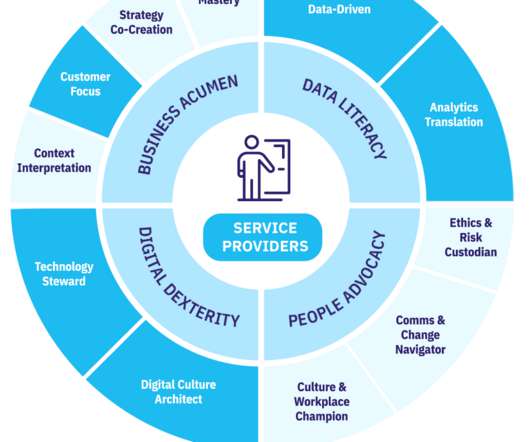Want a Career in Human Resources? Your In-Depth (2023) Guide
Analytics in HR
SEPTEMBER 7, 2023
Embarking on a career in human resources opens opportunities for you to support employee growth and drive organizational success. By 2030, the market will grow at an impressive rate of 12.7% Learning and development: HR helps with employee career development to help upskill employees and address skills gaps.
















Let's personalize your content